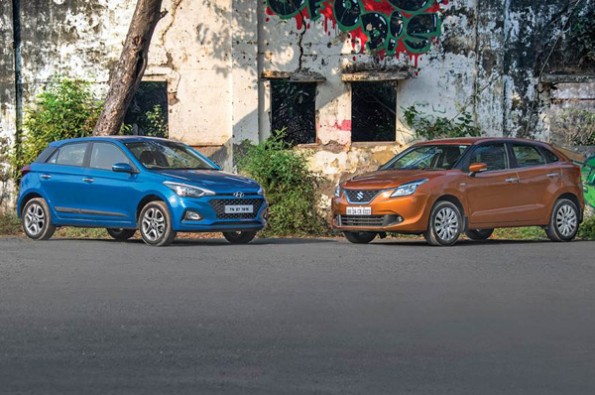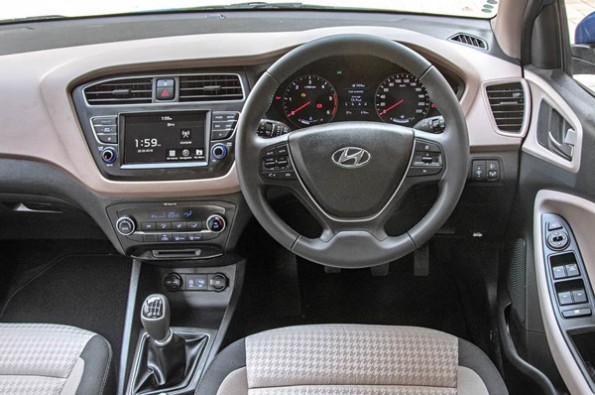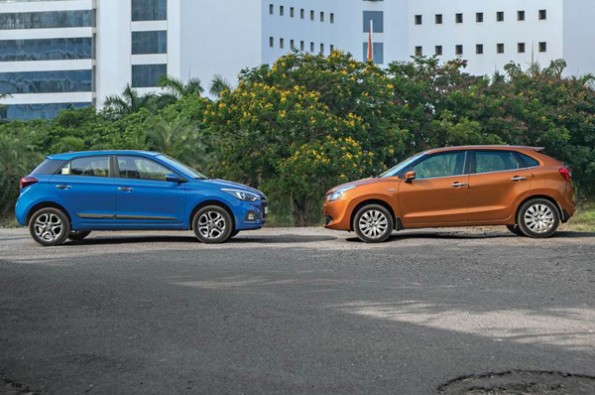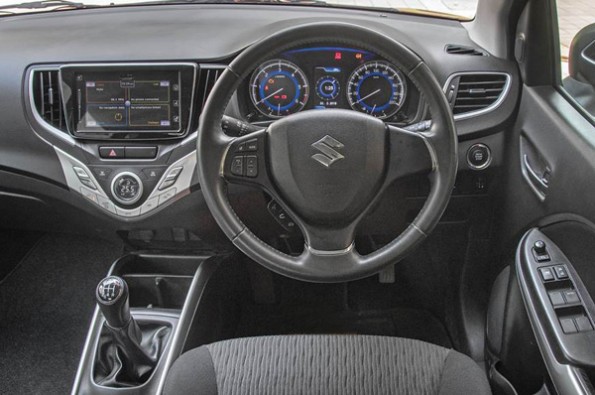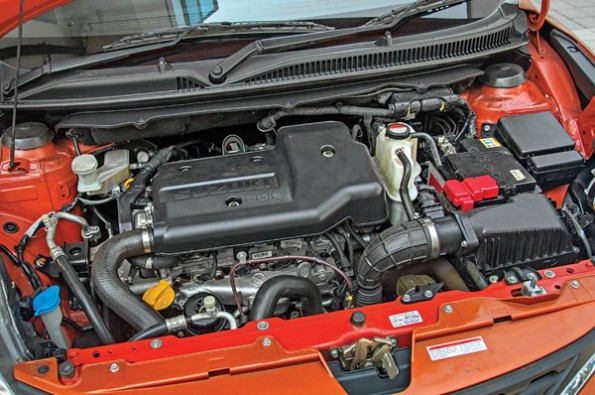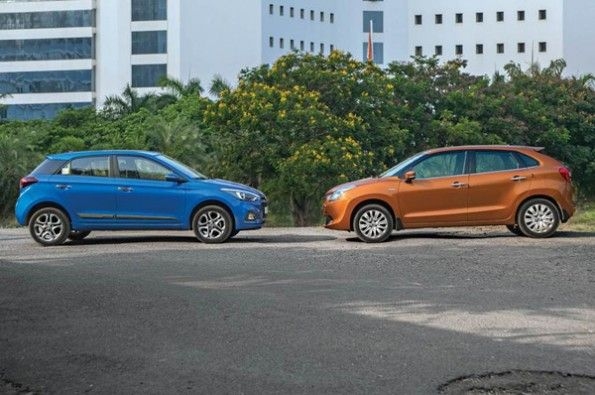
The revised i20 features mildly revised styling, an updated features list and a tweaked suspension setup. As soon as you enter the car you notice a nice quality feel – the car feels a lot more solidly put-together and fit and finish is excellent. While the seats are firmer, they offer better comfort and support. In this section, the i20 cabin feels much nicer than the Maruti, which feels a bit light and hollow. The black interior theme with silver accents make the interior feel quite dull. Even the plastics aren’t as premium. The seats are broad and there’s lots of space, but over long distances, you can get uncomfortable because of how softly the seats are cushioned.
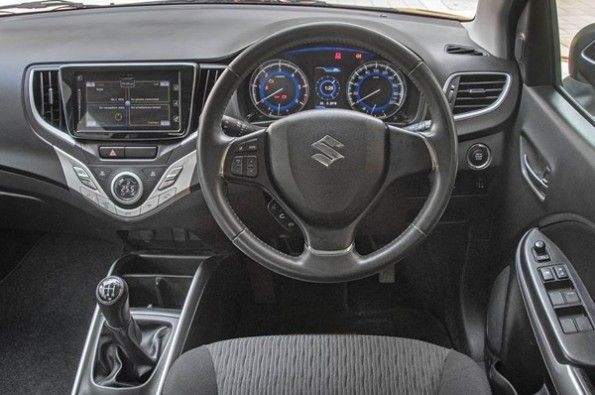
While there’s lots of space at the back in the i20, three occupants won't be as comfortable as they would be in the Baleno. There are a lot of storage areas with large bottle holders and charging points for mobile phones in the i20’s cabin. The car does have a tinier boot than the Baleno. Storage areas in the Baleno are also well thought out and the car even comes with a huge 339-litre boot. The top-spec i20 comes with side and curtain airbags, in addition to driver and passenger airbags. The i20 features a rear armrest auto-folding mirrors that open when you approach the car, and a static cornering light function.
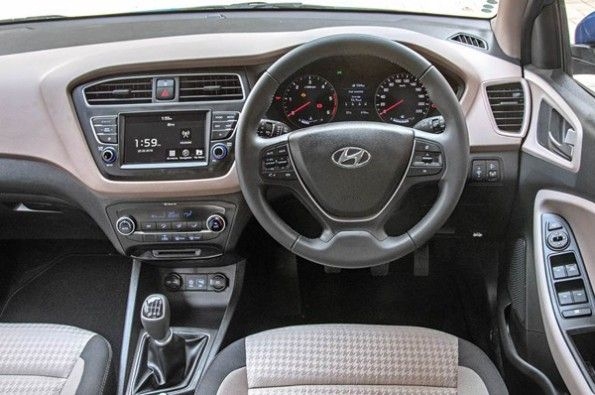
The Baleno also gets the same number of airbags as the i20, aside from the side and curtain. It also gets auto headlamps, 16-inch alloys, climate control, tilt and telescopic steering, touchscreen with Android Auto, Apple CarPlay, navigation and reversing camera, and an auto-dimming mirror. You also get bi-xenon headlamps and tinted windows.
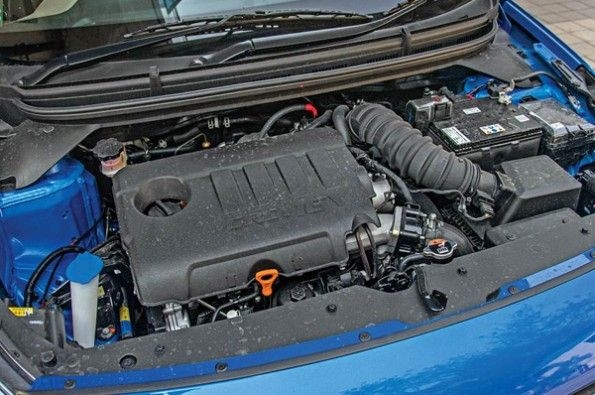
The Hyundai i20’s 1.4-litre diesel engine is quite refined – it makes over 90hp, which is 15hp more than the Baleno. The retuned engine is quicker to respond at low speeds, but it doesn't pull as hard at higher engine speeds, though. The Baleno’s 1.3-litre diesel engine is louder that the i20, but despite making less power, it is only 0.07sec slower than the i20 to 100kph. Power delivery isn’t as smooth as the i20 in the city either. The i20’s suspension sees a major change and the rear is a tad stiffer now and the car doesn't tend to bounce around so much.
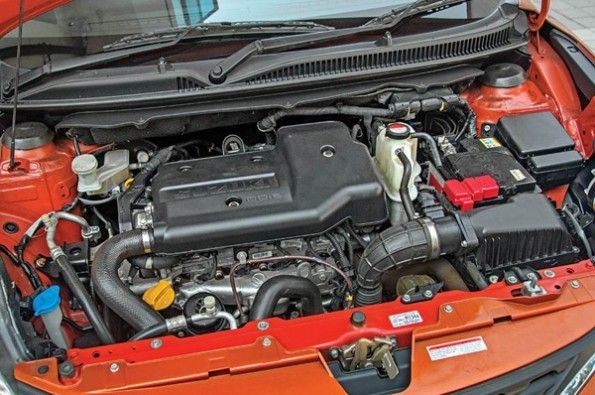
Ride is also slightly better at low and high speeds. The car’s overall handling has been tweaked. The Baleno’s ride on the other hand is great – it is pliant and absorbent. The Maruti feels stable at highway speeds and surefooted in the corners. It is a lot easier to pilot in town as well, but the steering feels very inconsistent at higher speeds and lacks feedback.
The Baleno is a hugely practical car but is let down by its cabin quality, which is no match for the quality interiors of the i20. While the i20 is pricier than the Baleno, the extra money does get you more in terms of safety equipment, a bit more by way of features and a more feel-good cabin. Overall, we’d pick the i20.
